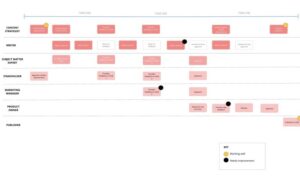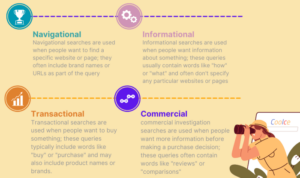Personal Finance Tips: Mastering Your Money for Success delves into the world of financial management with a fresh and engaging perspective that resonates with high school vibes. From budgeting strategies to debt management, this guide offers practical advice to help you take control of your finances.
Get ready to level up your money game and achieve financial freedom with these essential tips and tricks.
Importance of Personal Finance

Personal finance is crucial for financial stability as it involves managing your money effectively to achieve financial goals and secure your future. By practicing good personal finance habits, individuals can reduce financial stress, strengthen relationships, and plan for a secure future.
Impact on Stress Levels
One of the key benefits of personal finance is its impact on stress levels. When individuals have control over their finances, they are less likely to experience financial stress and anxiety. By creating a budget, managing debt, and saving for emergencies, individuals can have peace of mind knowing they are financially prepared for unexpected expenses.
Impact on Relationships
Personal finance also plays a significant role in relationships. Open communication about money matters, shared financial goals, and working together to achieve those goals can strengthen relationships. On the other hand, financial disagreements and mismanagement can strain relationships and lead to conflicts.
Impact on Future Planning
Good personal finance habits can lead to long-term financial security. By saving for retirement, investing wisely, and planning for major expenses like buying a home or starting a family, individuals can build a solid financial foundation for the future. This proactive approach to financial planning ensures a more stable and secure future.
Budgeting Strategies: Personal Finance Tips
Budgeting is a crucial aspect of personal finance that helps individuals manage their money effectively. By following specific budgeting strategies, individuals can track their expenses, set financial goals, and work towards achieving financial stability.
50/30/20 Rule
- The 50/30/20 rule is a popular budgeting method that suggests allocating 50% of income to needs, 30% to wants, and 20% to savings or debt repayment.
- This method helps individuals prioritize essential expenses, enjoy some discretionary spending, and save for the future simultaneously.
Zero-Based Budgeting
- Zero-based budgeting requires assigning every dollar of income to a specific expense, savings, or debt payment, ensuring that no money goes unaccounted for.
- By giving every dollar a purpose, individuals can track their spending closely, avoid unnecessary expenses, and work towards achieving financial goals.
Importance of Tracking Expenses and Setting Financial Goals
- Tracking expenses helps individuals understand where their money is going, identify areas of overspending, and make necessary adjustments to stay within budget.
- Setting financial goals provides a clear direction for budgeting, motivates individuals to save and invest wisely, and helps them achieve long-term financial success.
Tips for Creating a Realistic Budget
- Start by calculating your total income and listing all your expenses to get a clear picture of your financial situation.
- Differentiate between needs and wants to prioritize essential expenses and allocate funds accordingly.
- Set realistic financial goals, such as saving for emergencies, retirement, or major purchases, and incorporate them into your budget.
- Review and adjust your budget regularly to accommodate any changes in income, expenses, or financial goals.
Saving and Investing Tips
Saving and investing are both crucial components of personal finance, but they serve different purposes. Saving involves setting aside money for short-term goals or emergencies, usually in a low-risk account like a savings account. Investing, on the other hand, involves putting money into assets like stocks, bonds, or real estate with the expectation of earning a return over time.
Importance of Emergency Funds
Having an emergency fund is essential for financial security. It provides a safety net in case of unexpected expenses like medical bills or car repairs, helping you avoid going into debt. To start saving for an emergency fund, aim to set aside at least three to six months’ worth of living expenses in a separate account that is easily accessible in case of emergencies.
Beginner-Friendly Investment Options, Personal Finance Tips
- Index Funds: These are a type of mutual fund that tracks a specific market index, providing diversification and low fees. They are a great option for beginners looking to invest in the stock market without actively managing their investments.
- Retirement Accounts: Contributing to retirement accounts like a 401(k) or IRA can help you save for the future while taking advantage of tax benefits. These accounts offer a range of investment options to suit your risk tolerance and financial goals.
Debt Management

Debt management is a crucial aspect of personal finance that involves developing strategies to effectively pay off debts, prioritize repayments, and avoid falling into high-interest debt traps.
Good Debt vs. Bad Debt
- Good Debt: This type of debt is typically used to acquire assets that can increase in value over time or generate income, such as student loans for education or a mortgage for a home.
- Bad Debt: Bad debt usually refers to high-interest consumer debts like credit card balances, payday loans, or auto loans on depreciating assets.
It’s important to prioritize paying off bad debts first to avoid accumulating more interest and fees.
Strategies for Managing Debt
- Create a budget to track income and expenses, allowing you to allocate extra funds towards debt repayment.
- Consider debt consolidation to combine multiple high-interest debts into a single, lower-interest payment.
- Negotiate with creditors to arrange more favorable repayment terms, such as lower interest rates or extended payment periods.
Avoiding High-Interest Debt Traps
- Avoid taking on new debts unless necessary and focus on paying off existing debts first.
- Be cautious of payday loans, cash advances, or high-interest credit offers that can lead to a cycle of debt.
- Regularly review your credit report to identify any errors or fraudulent activity that could impact your debt management efforts.
Financial Goals Setting
Setting financial goals is crucial for achieving financial success. It helps you stay focused, motivated, and accountable for your money decisions. Whether it’s saving for a dream vacation or planning for retirement, having clear goals can guide your financial actions and priorities.
Importance of Setting Short-term and Long-term Financial Goals
Setting both short-term and long-term financial goals is important for balancing immediate needs with future aspirations. Short-term goals can include building an emergency fund, paying off credit card debt, or saving for a down payment on a house. Long-term goals may involve saving for retirement, buying a home, or funding your child’s education.
- Short-term goals help you address immediate financial needs and emergencies, providing financial security and stability in the present.
- Long-term goals allow you to plan for major life events and milestones, such as retirement, homeownership, or starting a business.
Tips for Setting SMART Financial Goals
When setting financial goals, it’s essential to make them SMART: Specific, Measurable, Achievable, Relevant, and Time-bound.
- Specific: Clearly define what you want to achieve with your financial goal, such as saving a specific amount for a down payment on a house.
- Measurable: Set tangible criteria to track your progress, like saving a certain dollar amount each month.
- Achievable: Ensure your goal is realistic based on your income, expenses, and financial situation.
- Relevant: Align your goal with your financial priorities and values to stay motivated and committed.
- Time-bound: Set a deadline for achieving your goal, creating a sense of urgency and accountability.
Examples of Common Financial Goals
Common financial goals include:
- Buying a home: Saving for a down payment and securing a mortgage to purchase a house.
- Saving for retirement: Building a nest egg to support yourself in your golden years.
- Starting a business: Funding a new venture or entrepreneurial endeavor.
Financial Literacy
Financial literacy is crucial for making informed financial decisions that can positively impact your financial well-being. It involves understanding various financial concepts, such as budgeting, saving, investing, and managing debt, to ensure long-term financial stability.
Importance of Financial Literacy
- Financial literacy helps individuals make smart financial choices and avoid common pitfalls that can lead to financial trouble.
- It empowers individuals to take control of their finances, set achievable financial goals, and work towards financial independence.
- Having a strong foundation in financial literacy can lead to better financial outcomes, increased savings, and overall financial security.
Resources and Tools for Improving Financial Knowledge
- Online financial courses and workshops can help improve financial literacy by providing in-depth knowledge on various financial topics.
- Financial literacy books and podcasts are great resources for learning about personal finance and improving financial decision-making skills.
- Financial apps and tools can assist in budgeting, tracking expenses, and setting financial goals to enhance financial literacy.
Staying Updated on Financial Trends and Changes
- Following reputable financial news sources and blogs can help you stay informed about the latest trends and changes in the economy.
- Attending financial seminars and webinars can provide valuable insights into current financial topics and market trends.
- Engaging with financial communities and forums can help you exchange ideas and stay updated on financial developments.





